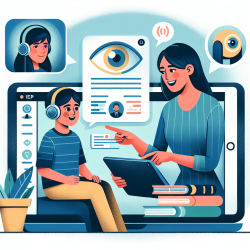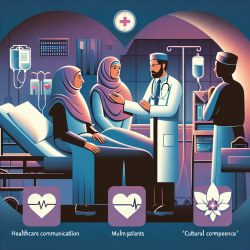Introduction
The landscape of cognitive testing is undergoing a transformation, thanks to the advent of smartphone technology. A recent study titled "Reliability and Validity of Smartphone Cognitive Testing for Frontotemporal Lobar Degeneration" provides compelling evidence that smartphones can be used as reliable and valid tools for cognitive assessments in patients with Frontotemporal Lobar Degeneration (FTLD). This breakthrough has significant implications for practitioners in speech-language pathology and other related fields.
The Power of Smartphones in Cognitive Testing
Smartphones are ubiquitous, and their potential in healthcare, particularly in cognitive testing, is being increasingly recognized. The study in question explored the reliability and validity of smartphone-based cognitive measures for remote evaluations of FTLD. The findings were promising, indicating that smartphone tests showed moderate to excellent reliability compared to traditional in-person assessments and were more sensitive to early stages of FTLD.
Key Findings
- Smartphone cognitive tests demonstrated moderate to excellent reliability, with intraclass correlation coefficients ranging from 0.77 to 0.95.
- These tests were able to accurately differentiate individuals with dementia from controls, with an area under the curve (AUC) of 0.93.
- Smartphone assessments were more sensitive to early symptoms of FTLD than standard neuropsychological tests.
Implications for Practitioners
For practitioners, these findings highlight the potential of integrating smartphone-based assessments into clinical practice. Here are some ways this can enhance your practice:
- Accessibility: Smartphone-based assessments can be conducted remotely, reducing the need for patients to travel, which is particularly beneficial for those with mobility issues.
- Early Detection: The increased sensitivity of smartphone tests to early symptoms can facilitate earlier intervention, potentially improving patient outcomes.
- Scalability: These assessments can be easily scaled to accommodate larger patient populations, making them ideal for clinical trials and research studies.
Encouraging Further Research
While the study provides a solid foundation, further research is necessary to explore the full potential of smartphone cognitive testing. Future studies should focus on diverse populations to ensure generalizability and explore the utility of these tests for longitudinal monitoring.
Conclusion
The integration of smartphone technology in cognitive testing represents a significant advancement in the field. By embracing these digital tools, practitioners can enhance their diagnostic capabilities and improve patient care. To read the original research paper, please follow this link: Reliability and Validity of Smartphone Cognitive Testing for Frontotemporal Lobar Degeneration.










